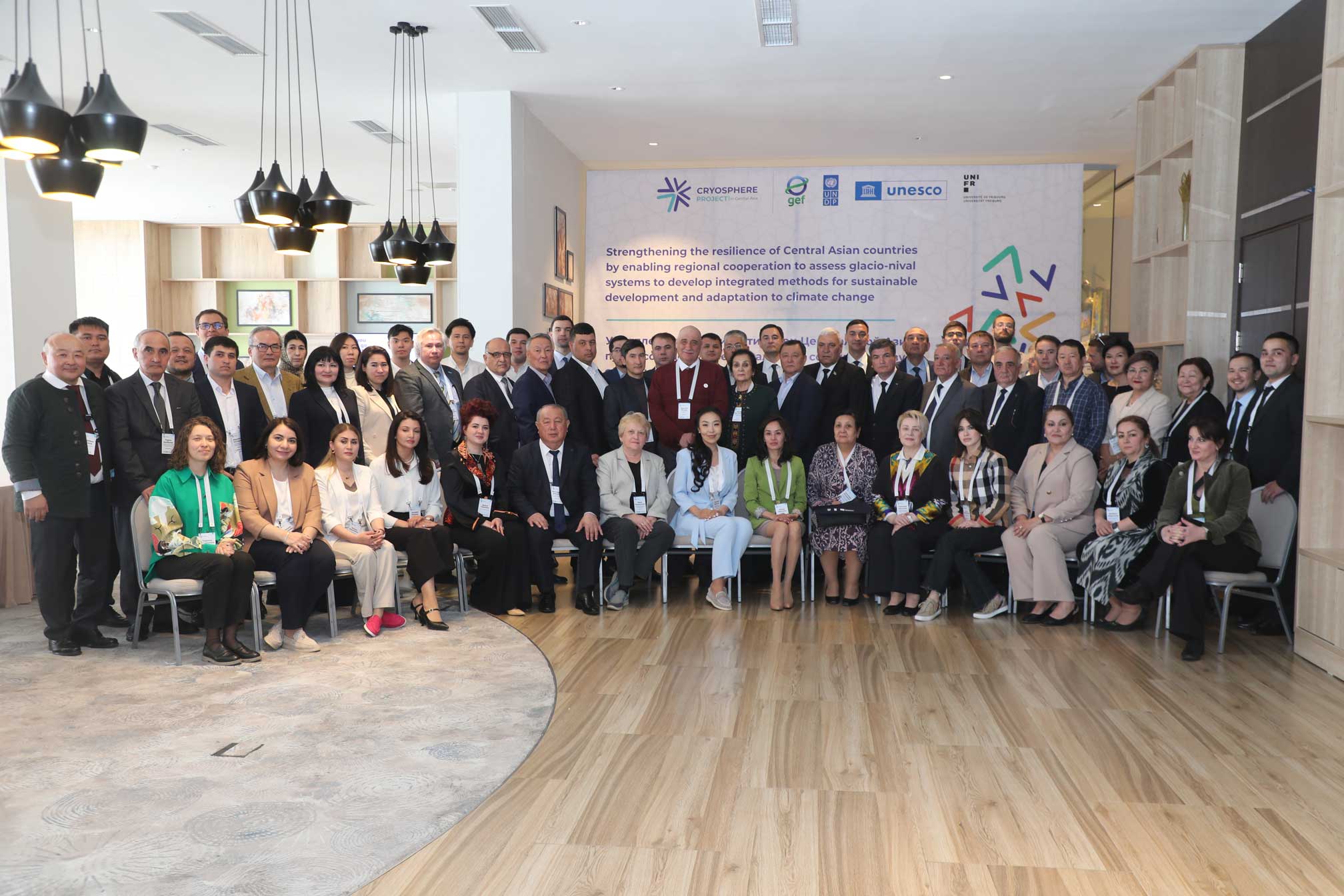Third Subregional Seminar
Third Subregional Seminar: "Strengthening the Resilience of Central Asian Countries by Promoting Regional Cooperation in the Assessment of Nival-Glacial Systems for the Development of Integrated Approaches to Sustainable Development and Climate Change Adaptation"
On April 2–3, 2025, the 3rd Subregional Seminar dedicated to the GEF_ UNDP _ UNESCO project was held in Samarkand, Uzbekistan.
The aim of the seminar was to strengthen cooperation among experts from Kazakhstan, Uzbekistan, Kyrgyzstan, Tajikistan, and Turkmenistan in the field of cryosphere research. The event also focused on establishing a solid foundation for the development of national and subregional action programs based on transboundary diagnostic analysis.
The seminar was attended by representatives from 14 organizations in Uzbekistan, 9 organizations from Kazakhstan, 8 from Kyrgyzstan, 8 from Tajikistan, and 12 from Turkmenistan, as well as representatives from the University of Fribourg (Switzerland) and from UNESCO’s regional and country offices.
The Central Asian Regional Glaciological Centre (CARGC), a Category 2 Centre under the auspices of UNESCO, was represented by leading researchers N.V. Pimankina and A.B. Egorov.
As part of the seminar, an open dialogue session titled “National and Subregional Actions” was held.
GEF Technical Consultant Mr. T. Makeyev presented the draft Diagnostic Analysis (DA) of the key challenges in monitoring, observation, and study of the cryosphere in Central Asia.
Researchers from Kazakhstan contributed to the development of the DA.
During the seminar, a presentation was delivered by scientists from the University of Fribourg (Switzerland), based on existing research programs. The presentation highlighted the widespread degradation of glaciation and a reduction in snow cover area.
According to scenario-based forecasts, river runoff peaks are expected to shift to the spring season.
A significant deficit in Syr Darya River runoff is anticipated by late summer, while the Amu Darya River basin is expected to experience the most notable changes in the spring months.
In accordance with the programme, presentations were delivered on proposed pilot projects in the field of cryosphere monitoring and research. Representatives from Kazakhstan presented the concept of the pilot project “Innovative Cryosphere Monitoring for Enhancing Climate Resilience in Central Asia.” The objective of the project is to integrate the Snow Mapper model (developed by the University of Fribourg) with the snow cover and glacier monitoring system to support the safety of the population and infrastructure during flood-prone periods in mountainous areas.
Participants from other countries presented projects aimed at developing monitoring systems, promoting sustainable tourism, and protecting local populations from the threats related to cryospheric transformations and the development of hazardous processes.
Participants from various countries paid significant attention to the use of common research methodologies, data standardization, digitization of archival materials, capacity building, integration of cryosphere studies into educational curricula, and the engagement of youth in advancing cryospheric research in Central Asia.
The presentations addressed the planning and implementation of events for the International Year of Glaciers. They also highlighted the progress of the "Water Towers Partnership" initiative, proposed during the address by the President of the Republic of Kazakhstan at the Water Summit held on December 3, 2024, in Riyadh, Saudi Arabia. The staff of the Central Asian Regional Glaciological Centre (CARGC) will continue their scientific research on glaciers, which play a vital role in the global water cycle.

Outcomes of the seminar: According to the GEF methodology, a common vision of the project, its goals, and main tasks were developed. Overall, a joint action plan for conducting collaborative scientific research, exchanging information, and addressing the shortage of human resources was approved. The positions of the countries regarding the direction of activities to solve the main issues of the cryosphere were presented, which will form the basis for the National Action Plans.
Overall, the seminar contributed to strengthening existing scientific connections and creating new ones. Participants had the opportunity to exchange knowledge and experiences in this important area of research.
CARGC
April 11, 2025
